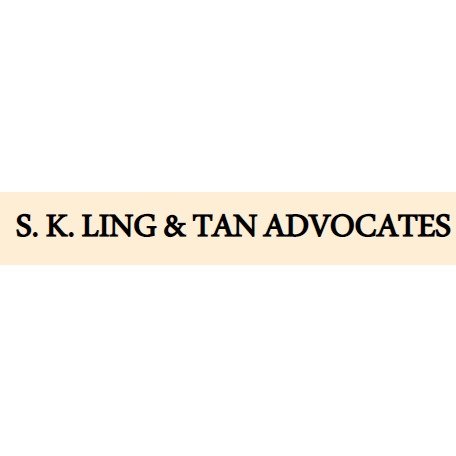Best Art & Cultural Property Law Lawyers in Kuching
Share your needs with us, get contacted by law firms.
Free. Takes 2 min.
List of the best lawyers in Kuching, Malaysia
About Art & Cultural Property Law in Kuching, Malaysia
Art & Cultural Property Law in Kuching, Malaysia, is a specialized area of law that deals with issues related to the protection, preservation, and transaction of artworks, antiques, and cultural heritage properties. This legal field encompasses a wide range of activities, including the acquisition, ownership, and restitution of cultural goods. Given Kuching’s rich cultural heritage and vibrant art scene, legal professionals in this field work to balance the protection of cultural assets with legal and commercial interests.
Why You May Need a Lawyer
Legal assistance may be necessary for a variety of situations within the realm of Art & Cultural Property Law. Common scenarios include:
- Disputes over the ownership of artwork or cultural artifacts.
- Negotiations related to the sale or transfer of art and cultural property.
- Representation in claims regarding the restitution of cultural heritage items.
- Legal guidance on importing and exporting art and cultural objects, in compliance with Malaysian law.
- Understanding and navigating copyright issues specific to artworks.
Having a lawyer can help ensure that artists, collectors, and cultural institutions comply with local and international regulations, thus protecting their interests and preserving cultural heritage.
Local Laws Overview
Kuching, and Malaysia at large, has a framework of laws and regulations designed to protect its rich cultural history and thriving art community. Key laws and aspects include:
- National Heritage Act 2005: This legislation provides for the conservation and preservation of national heritage, including tangible and intangible cultural properties.
- Copyright Act 1987: It protects the rights of creators of artistic works, including paintings, sculptures, and other art forms.
- Customs Act 1967 and Antiquities Act 1976: These acts regulate the export and import of antiquities and valuable artworks.
- Trade Descriptions Act 2011: Relevant for ensuring authenticity and combating forgeries in art transactions.
Frequently Asked Questions
What constitutes cultural property under Malaysian law?
Cultural property in Malaysia generally includes artworks, artifacts, and other items of historical or cultural significance that are protected under the National Heritage Act 2005.
Can art pieces be freely exported from Malaysia?
No, certain art pieces and cultural properties require special permits to be legally exported, as regulated under the Customs Act 1967 and Antiquities Act 1976.
How do I protect my original artworks from unauthorized reproduction?
Original artworks are protected under the Copyright Act 1987, which provides creators with exclusive rights to reproduce, distribute, and display their works.
What should I do if I inherit a cultural artifact?
You should verify its provenance, and consult with a lawyer to ensure compliance with local heritage laws that may require registration or reporting.
What happens if a cultural artifact is discovered on my property?
Discovery of cultural artifacts is typically subject to reporting requirements under the National Heritage Act 2005, and they may need to be surrendered to relevant authorities.
How can I verify the authenticity of a piece of art?
Authentication can be done by consulting art experts, seeking provenance documentation, and obtaining legal advice on the buyer's rights under the Trade Descriptions Act 2011.
Can I make replicas of historical artifacts for commercial purposes?
Replicas may be allowed, but it is important to comply with copyright and Trade Descriptions Act regulations to avoid deception or infringement claims.
What legal actions can be taken if I find my artwork being used without permission?
You can file a copyright infringement claim under the Copyright Act 1987, which may result in the cessation of the unauthorized use and compensation for damages.
Am I allowed to photograph a cultural site in Kuching?
While personal photography is often permitted, commercial use may require permission from relevant authorities, especially at protected heritage sites.
What constitutes a violation of cultural heritage laws?
Violations can include unauthorized excavation, illegal trade of protected items, and damage or alteration of heritage sites as outlined in the National Heritage Act 2005.
Additional Resources
Individuals seeking more information or assistance can reach out to various resources such as:
- Department of National Heritage: Oversees the conservation of heritage sites and is a vital resource for guidelines.
- Malaysian Intellectual Property Corporation (MyIPO): Provides information on copyright registration and intellectual property rights.
- Sarawak Museum Department: Offers insights into the region's historical artifacts and potential legal implications.
- Local legal institutions and Bar Council Malaysia: These bodies can provide comprehensive legal services and referrals to experts in Art & Cultural Property Law.
Next Steps
If you need legal assistance in Art & Cultural Property Law, here are some steps to follow:
- Identify your specific legal needs and the nature of your issue.
- Research and contact legal professionals or law firms in Kuching that specialize in Art & Cultural Property Law.
- Prepare relevant documents and information that will assist the lawyer in understanding your case.
- Schedule a consultation to discuss your situation and explore possible legal actions or compliance strategies.
Seeking timely legal advice can protect your interests and help navigate the complex legal landscape surrounding art and cultural property in Malaysia.
Lawzana helps you find the best lawyers and law firms in Kuching through a curated and pre-screened list of qualified legal professionals. Our platform offers rankings and detailed profiles of attorneys and law firms, allowing you to compare based on practice areas, including Art & Cultural Property Law, experience, and client feedback.
Each profile includes a description of the firm's areas of practice, client reviews, team members and partners, year of establishment, spoken languages, office locations, contact information, social media presence, and any published articles or resources. Most firms on our platform speak English and are experienced in both local and international legal matters.
Get a quote from top-rated law firms in Kuching, Malaysia — quickly, securely, and without unnecessary hassle.
Disclaimer:
The information provided on this page is for general informational purposes only and does not constitute legal advice. While we strive to ensure the accuracy and relevance of the content, legal information may change over time, and interpretations of the law can vary. You should always consult with a qualified legal professional for advice specific to your situation.
We disclaim all liability for actions taken or not taken based on the content of this page. If you believe any information is incorrect or outdated, please contact us, and we will review and update it where appropriate.











